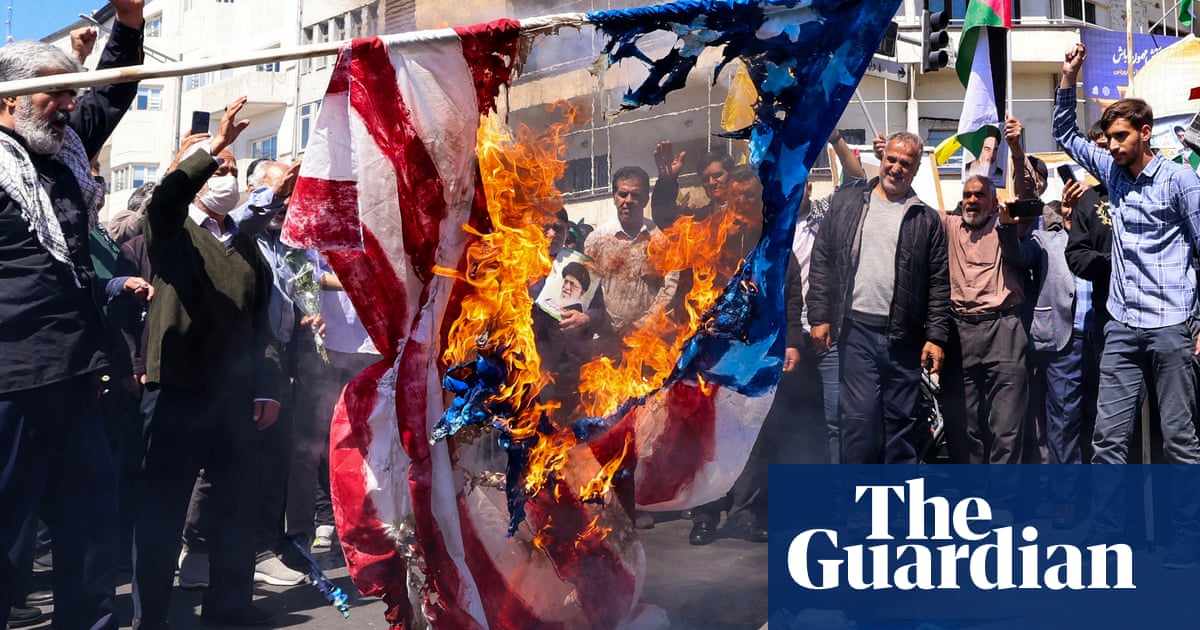
Unless progress was made, the official said, Iran’s nuclear capabilities could go beyond limits imposed under the JCPOA
US State Department officials warned during a background briefing with reporters on Monday that restoring the Joint Comprehensive Plan of Action might be “impossible” because of Iranian nuclear advances.
The Senior State Department official also said that it was “hard to imagine” restoring the JCPOA agreement without Iran also releasing four Americans who were being held hostage by Iranian forces.
Unless progress was made, the official said, Iran’s nuclear capabilities could go beyond limits imposed under the JCPOA, creating an “extremely dangerous” situation for the Middle East and the world.
“We are in the final stretch, because as we have said now for some time, this cannot go on forever because of Iran’s nuclear advancements,” the senior State Department official who asked to remain anonymous said.
“This is not a prediction. It is not a threat. It is not an artificial deadline. It is just a requirement that we have conveyed indirectly to Iran and to all of our P5+1 partners for some time, which is that given the pace of Iran’s advances, nuclear advances, we only have a handful of weeks left to get a deal. After which point it will unfortunately be no longer possible to return to the JCPOA and to recapture the non-proliferation benefits that the deal provided for us.”
The official said that time was short, and that it could be “weeks not months” before Iran might achieve fissionable nuclear material.
Iranian officials pledged last month to not seek uranium grade-level enrichment above 60 percent. But without the JCPOA, continued Iranian efforts could achieve 90 percent uranium grade-level enrichment, which would make building a nuclear weapon more likely.
“We are reaching the final moment, after which we will no longer be in a position to come back to the JCPOA because it will no longer hold the value that we negotiated for,” the official said.
“We have been at this now for roughly 10 months. The last time we were in Vienna, negotiations in January were among the most intensive that we have had to date. And we made progress narrowing down the list of differences to just keep priorities on all sides.”
But the official stressed that for Iran, “Now is the time for political decisions. Now is the time to decide whether, for Iran to decide, whether it is prepared to make those decisions necessary for a mutual return to compliance with the JCPOA.”
The 159-page JCPOA was signed on July 14, 2015 by Iran and the P5+1 nations, which include China, France, Germany, Russia, the UK and the US. It was ratified by the UN on July 29, 2015.
However, US President Trump withdrew from the deal on May 8, 2018 and reimposed punishing economic sanctions against Tehran that included severe restrictions on its ability to sell oil. The senior State Department official called Trump’s action “catastrophic.”
Leaders of the National Council of Resistance of Iran have denounced the JCPOA, saying that Iran would not live up to its commitments, and have called for stronger sanctions to cripple the regime’s oppressive leadership.
“The behavior of the Iranian regime, especially over the past year, makes it clear that Supreme leader Khamenei, using the negotiations as a cover to buy time, is rapidly dashing toward building the nuclear bomb. Raisi’s selection to become the regime’s president is intended to serve a two-pronged purpose, gaining concessions from the West and escalating repression against a defiant population who seek the overthrow of the regime in Iran,” said Alireza Jafarzadeh, the deputy director of the Washington office of the NCRI.
“The US and the P 5+1 have only one option, which is to quickly change course before it is too late and reimpose all UN Security Council resolutions and hold the regime accountable for its egregious violations.”
US President Biden sought to restore the JCPOA participating in indirect negotiations with Iran in Vienna 10 months ago, the official said.
“We will know sooner rather than later whether we are, whether the US is back in the JCPOA and Iran is back in fully implementing its obligations under the JCPOA, or whether we are going to have to face a different reality, a reality of mounting tensions and crisis,” he said.
The Biden administration has been clear over the past 10 months of negotiations in Vienna, he said, that returning to the JCPOA would “advance core US national interests” and “end the current nuclear non-proliferation crisis.”
“It would create an opportunity to depressurize the broader regional crisis. In other words, it would get us out of the situation that we inherited from the prior administration’s catastrophic error of withdrawing from the JCPOA, which left us with an unconstrained Iran nuclear program and inadequate, if not wholly unsatisfactory tools to address it,” the senior State Department official said.
“We know it is very possible that Iran chooses not to go down that path and we are ready to deal with that contingency. We hope that’s not the decision that Iran makes. But we are prepared to deal with either one of them.”
He declined to say what actions might be taken in response to the failure of the negotiations to restore the JCPOA agreement, nor would he discuss details on concerns about the four Americans being held hostage by Iranian forces.
But the official said, “We are negotiating on the release of the detainees separately from the JCPOA. But as we have said it is very hard for us to imagine a return to the JCPOA while four innocent Americans are behind bars or are detained in Iran.”












